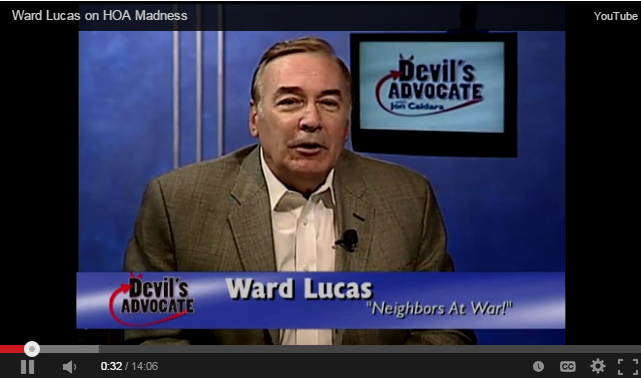guest blog by Deborah Goonan
To further challenge the misguided notion that buyers, owners, and residents in HOAs need no federal legislative policy, we will now examine what NAHB is doing on the Congressional level. Although NAHB’s scope and mission is more broadly defined, and encompasses the multi-family rental sector, a significant portion of new residential construction designed for home ownership will undoubtedly be governed by HOAs. Therefore, this analysis has relevance to HOA Reform efforts.
In March 2014, NAHB conducted its “Bringing Housing Home” campaign. Regional conferences were held for the purposes of allowing NAHB members to meet with their respective Congressional leaders to discuss important federal issues for home builders.
NAHB addressed four Priority Issues:
1) Housing Finance Reform:
On this issue, “NAHB has made recommendations to Congress outlining a plan by which Fannie Mae and Freddie Mac would be gradually phased into a private-sector- oriented system, where the federal government’s role is clear, but its exposure is limited.”
NOTE: While CAI appears to oppose expanded privatization of mortgage financing, for fear that such a system would result in unfavorable lending standards for HOAs, NAHB appears to more fully embrace it.
While both NAHB and CAI insist upon a federal role in housing finance, they fail to support a federal role in oversight of governance and management standards for those communities.
2) Immigration reform:
NAHB states that “foreign-born workers account for 22% of the construction labor force nationally,” and NAHB contends there is a current labor shortage. Therefore, NAHB favors an immigration policy that will remove the current cap of 15,000 immigrants for construction industry. They further urge Congress to enact legislation “… preventing state and local governments from creating their own versions of verification requirements for employers. This is essential for any business that operates in multiple states.”
If NAHB is successful in convincing Congress to relax E-Verify standards for immigrant construction workers, what might this mean for HOA buyers? NAHB seems to be making the argument that labor shortages are driving up construction costs, but does not state that increasing the labor supply will result in lower sale prices for buyers. At this point, there does not appear to be a shortage of available homes for sale. The main purpose of NAHB lobbying appears to be aimed at reducing labor costs for home builders.
Yet there are no legislative efforts by either CAI or NAHB to reduce operating costs for HOAs. Indeed, Developers and CAI-backed HOA Boards want to maintain carte blanche on their ability to generate revenue from homeowners the form of regular and special assessments. It is up to owners in HOAs to press Congress for reasonable limitations upon the HOA’s ability to demand ever more money, with nothing to show for it.
3) Tax Reform
NAHB favors maintaining the Mortgage Interest Deduction on first and second homes, and maintaining Low Income Housing Tax Credits for construction of multi-family rental housing.
So why not extend a comparable tax deduction to homeowners in HOAs for assessments – at least the portion that pays for services that would otherwise be provided by local governments? After all, to some extent, HOA homeowners are subject to double taxation. Why should non-HOA taxpayers of similar size homes have a tax advantage over HOA homeowners?
4) Flood Insurance Reform
NAHB successfully lobbied Congress to pass legislation that keeps flood insurance rates affordable in the short term, while buying more time to reevaluate flood maps.
On the surface, that appears to be a good thing for some homeowners in high-risk flood zones. But at the same time, this new legislation has not provided any mandate or disincentive that would prevent Developers from continuing to build in flood prone areas. In the future, inevitable increases in rates will hit HOA owners hard. If FEMA continues to remain underfunded, all taxpayers will feel the pinch.
In conclusion, for every major federal legislative issue that CAI and NAHB pursue, there are related or competing federal issues for HOA owners and residents that have been largely ignored for decades.
Isn’t it high time we change that trend?
(link to NAHB assessment of 2014 election)
(link to NAHB Federal Lobbying Campaign)

